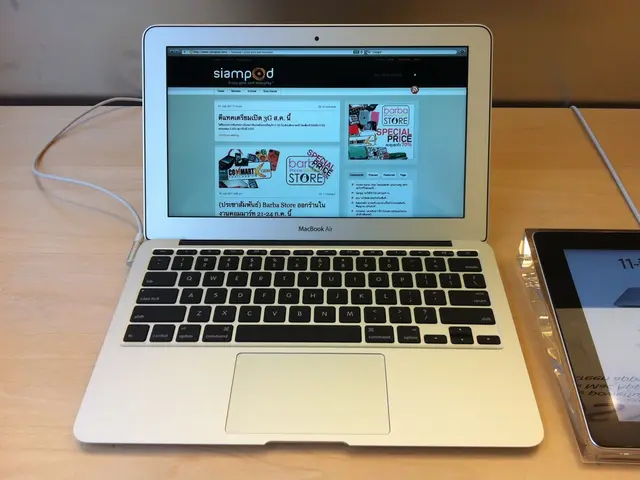Official Announcement: Biometric Smartphone Identification System to Debut in 1.5 Years
European Digital Identity Wallet on Schedule, Set to Streamline Digital Transactions
The development of the European Digital Identity Wallet (EUDI), a comprehensive digital solution designed to simplify identity management and improve service interactions across the European Union, is progressing as planned, according to Federal Digital Minister Karsten Wildberger (CDU). Speaking at the "Technology Experience Convention" in Heilbronn, Wildberger expressed optimism about the wallet's development.
The conference was organized by the "Handelsblatt" together with the digital arm of the Schwarz Group. The EUDI app is anticipated to be available by the end of 2026, with an initial release by early 2027. However, Wildberger emphasized that perfect digital solutions are rare, and overpromising should be avoided. He noted that the market introduction of the wallet will be a gradual process, with additional features added over time.
Beyond Online Identification
This digital identity card is more than just a tool for online identification. It will allow citizens to digitally sign documents, open bank accounts, and manage various official documents such as driver's licenses, health cards, certificates, or vaccination passes, all within the digital wallet. The use of this digital identity is voluntary.
Wildberger described the EUDI Wallet as encompassing documents from ID cards to driver's licenses as well as public transport tickets. It will also support the inclusion of credit cards and certificates. He expressed confidence that this digitalization would make citizens' lives more convenient.
Addressing Sovereignty Concerns
The traffic light government has initiated the implementation of this project. It is based on an EU regulation requiring all member states to provide at least one state ID application by 2027. Countries like Estonia have already made digital ID cards the standard.
The wallet's rollout is expected to enhance the digital sovereignty of the continent. Currently, 80% of digital payments in Europe are handled by non-EU companies. This means that sensitive payment data leaves the EU legal framework daily, raising concerns about privacy and security. Wildberger emphasized the urgency of creating trustworthy alternatives.
The EUDI Wallet is a significant stride towards establishing a robust digital identity framework that balances privacy and efficiency. Challenges remain, such as ensuring accessibility for marginalized groups and refining age verification methods. Despite these obstacles, the EUDI Wallet represents a vital step forward in fostering a secure and interoperable digital ecosystem across the EU.
The European Digital Identity Wallet, apart from its online identification capacity, will incorporate smartphones for digitally signing documents and managing gadgets like driver's licenses, health cards, and transport tickets, showcasing the integration of various transport and identity technologies. As the wallet becomes accessible, it aims to reduce the dominance of non-EU companies in digital payments and subsequently strengthen Europe's digital sovereignty, ensuring the security and efficiency of digital transactions.







